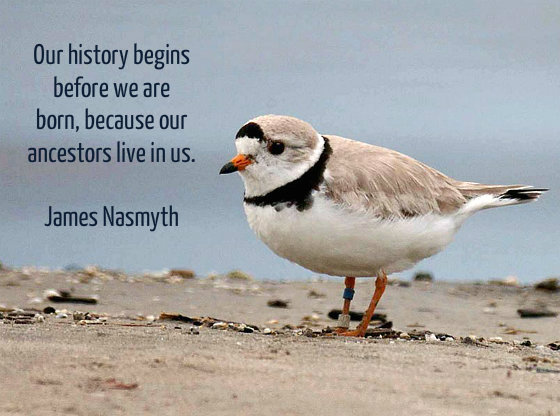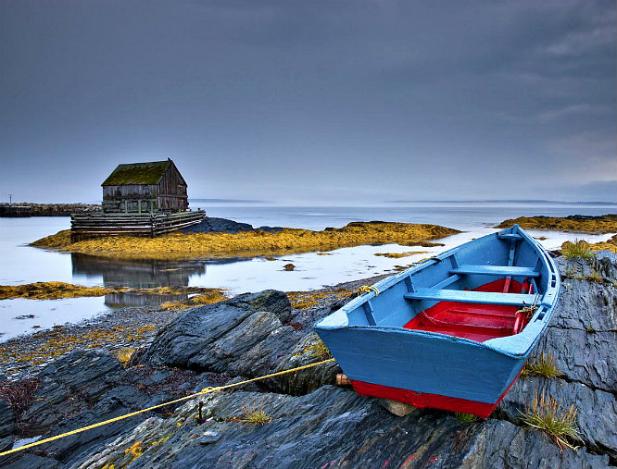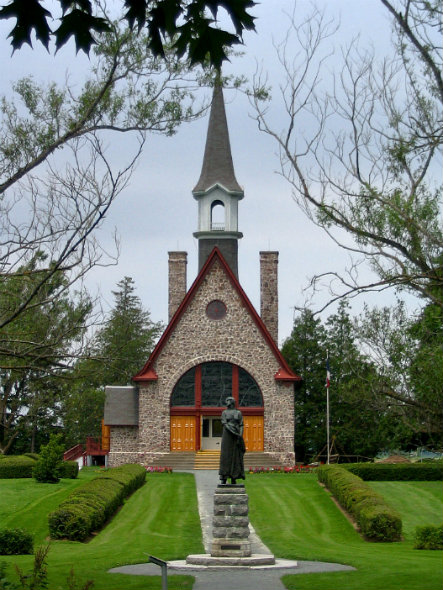| Please don't use the 'Send page' feature of your computer to send this entire page in an e-mail message or document format. This distorts the layout and separates the page from its source. If you'd like to share it, please just send the link. The link to this page is: http://www.thepastwhispers.com/Acadian_Dreams.html |
| Nova Scotia: Acadian Dreams |
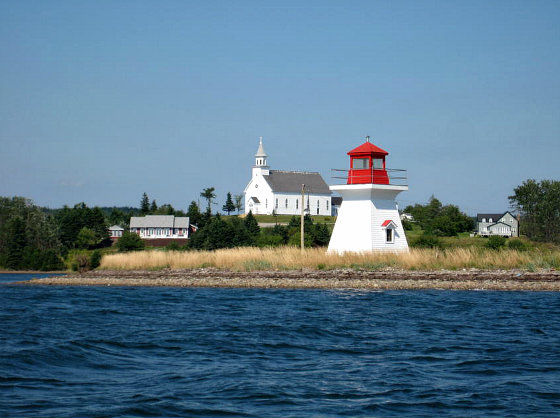
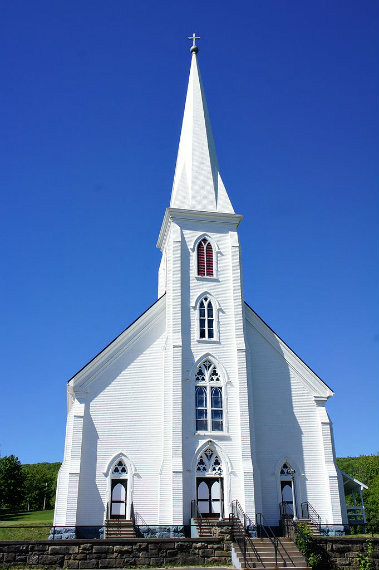
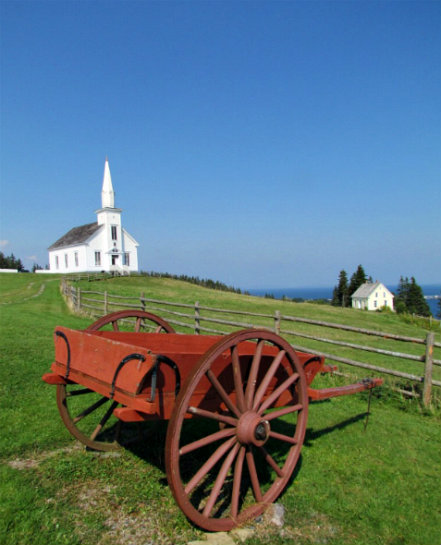
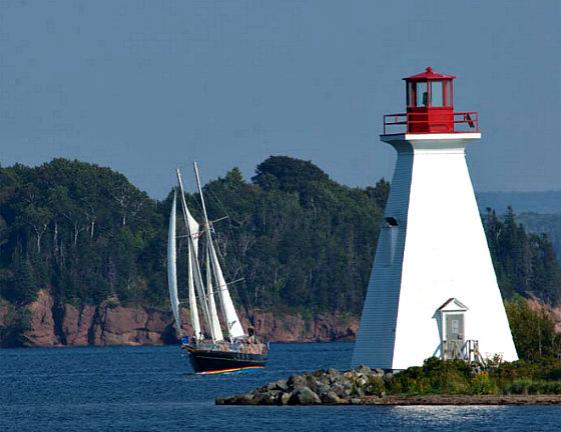
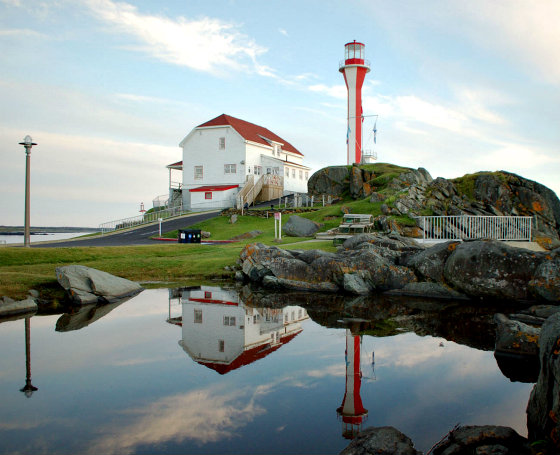
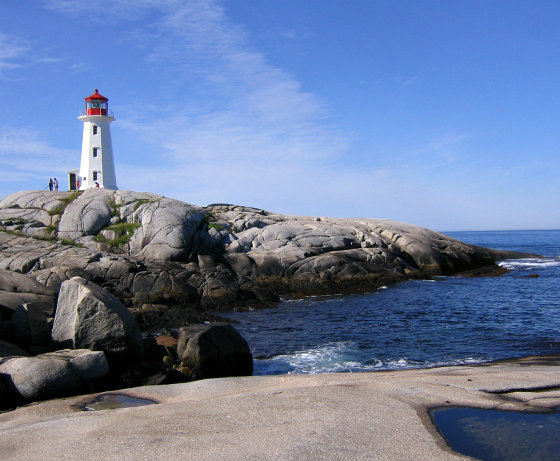
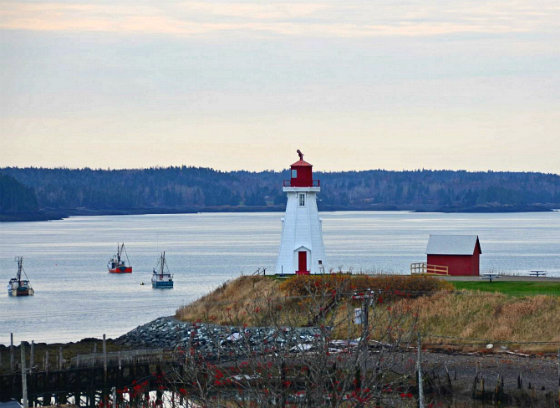
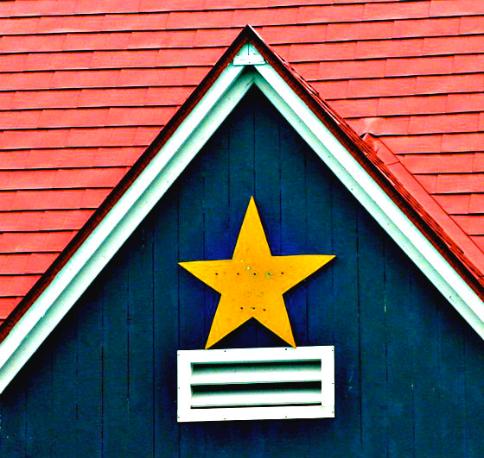
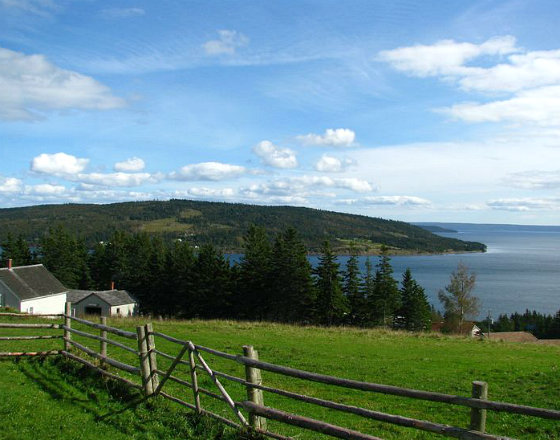

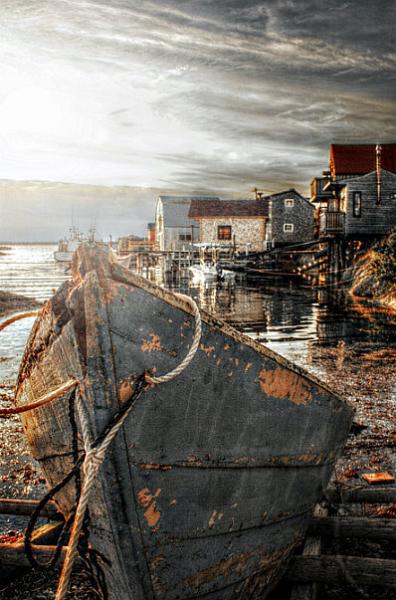
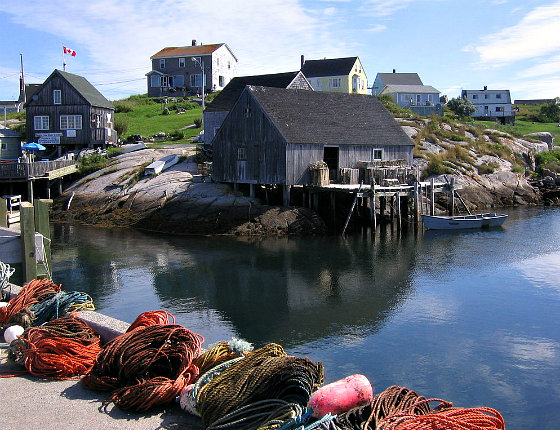
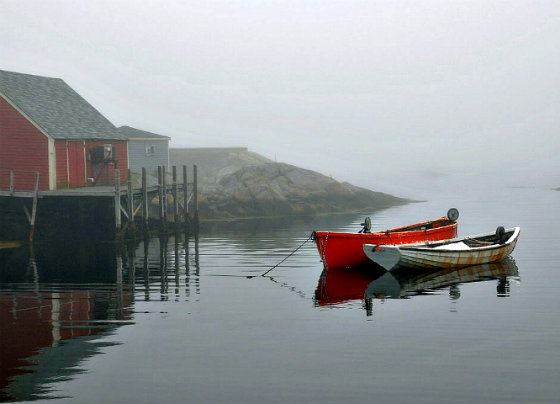
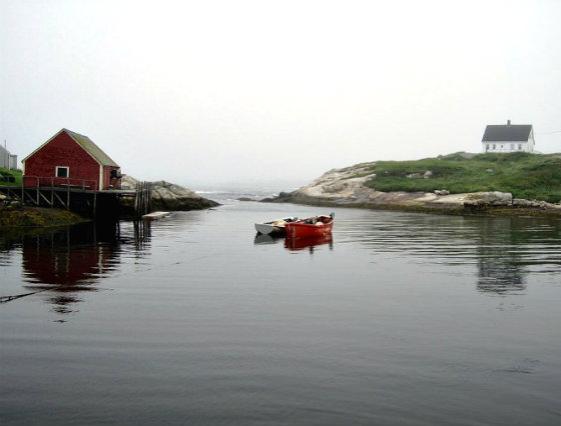
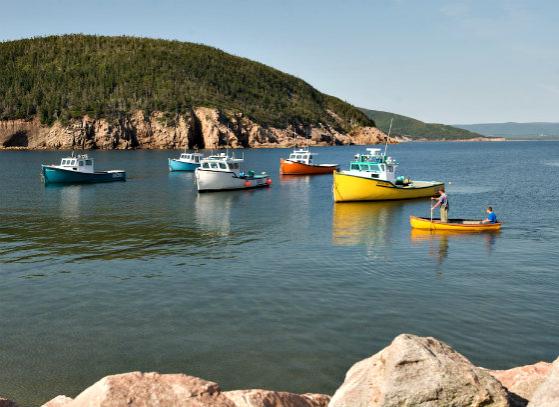
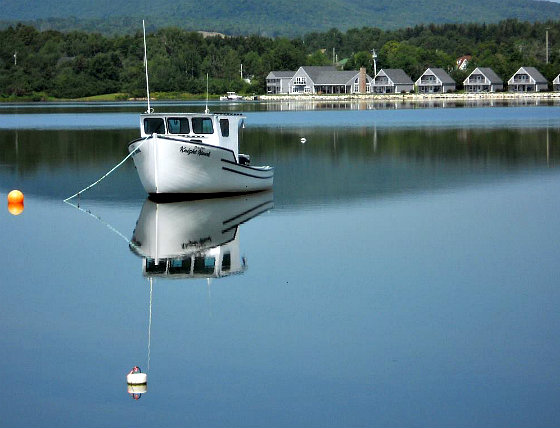
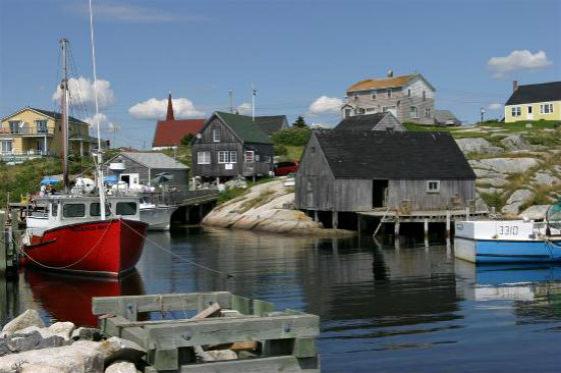
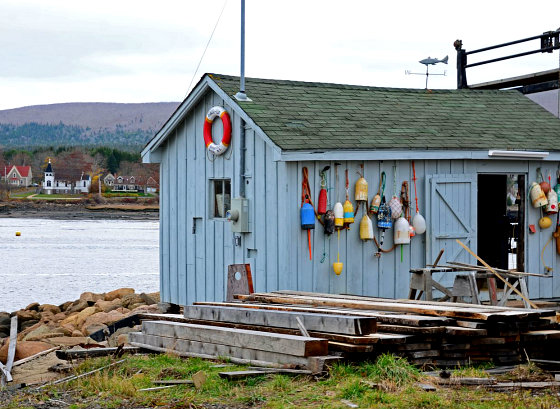
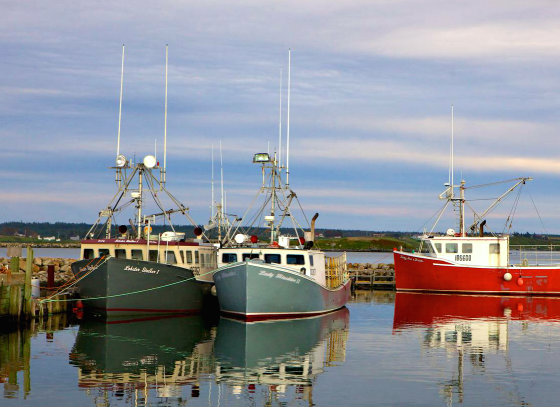
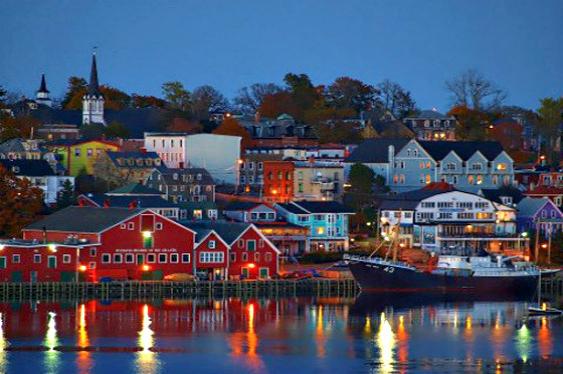
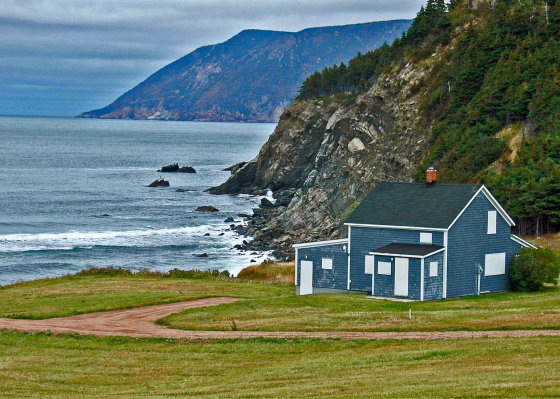
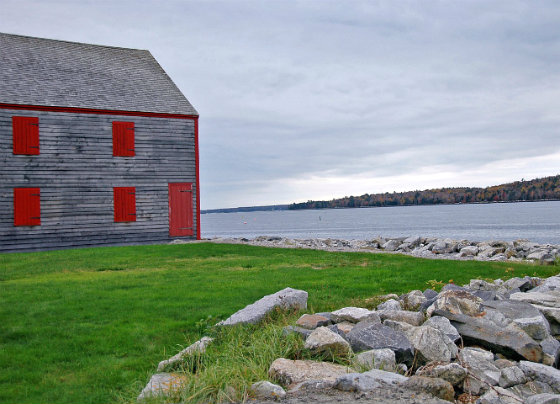
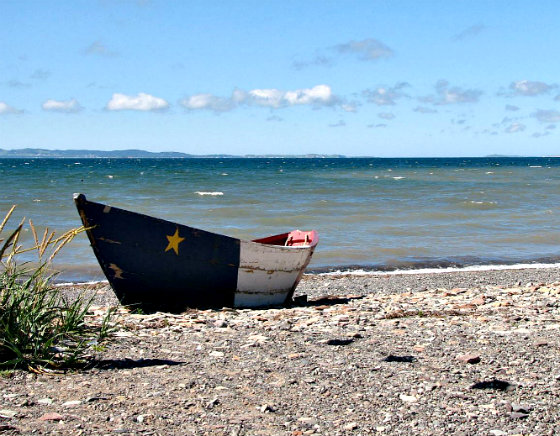
| Recently, I was looking though a photo album I hadn't opened in awhile and found a picture of a lady who was once my next door neighbor years ago. She was originally from Lafourche Parish, but had lived in New Orleans all her adult life. Her ancestors were among the French Acadians who were expelled from Nova Scotia after the British conquest and migrated to Louisiana in the 1700's. She told me that it had always been her dream to travel to Nova Scotia and visit the site her ancestors had called home for over 100 years before they were exiled. She didn't know if she would ever make the trip, but she said the place tugged at her heartstrings and she kept the idea safe and snug in what she called her cache of Acadian dreams. When I saw her photo, I wondered if she'd ever made it to Nova Scotia or if she still carried the longing to see a distant homeland safe and snug in the Acadian dreams that were once so close to her heart. -- Nancy |
| With one exception, the photos on this page were all taken in Nova Scotia, Canada. |
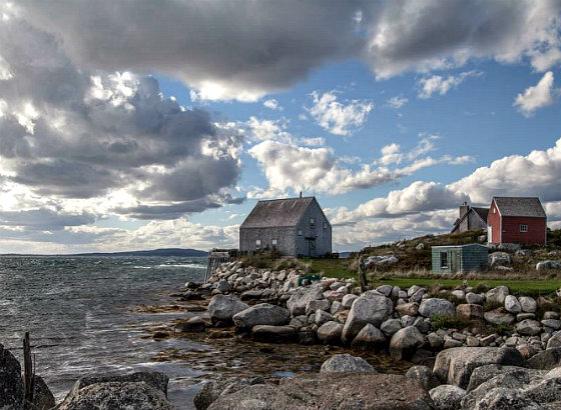
| She's Called Nova Scotia She grows on you slowly the first time you meet There's just so much beauty the heart can't believe; You want to stay longer and she's ever so pleased You're one of the many who don't want to leave. It's hard to remember the places you've been For once in her presence, she's all that you'll see; She cradles you softly like a warm summer breeze And wins your heart over with a feeling of peace. She welcomes the strangers from a far-away shore She beckons the travelers who have been here before; At night, as she slumbers, the winds softly call And awaken her spirit that lives in us all. So walk through her green fields, go down to the sea The peace and the beauty is more like a dream; She's called Nova Scotia and she so makes you feel You've discovered a treasure too good to be real. -- Rita MacNeil |
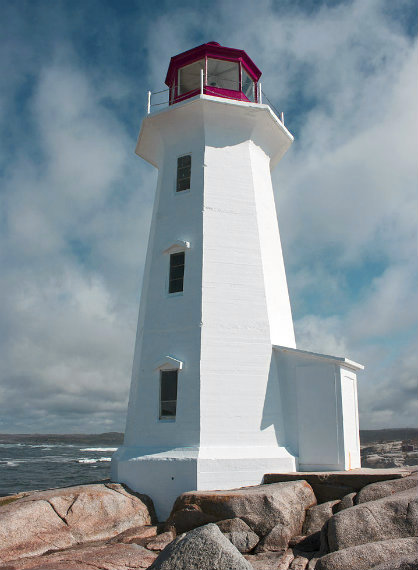
Nova Scotia's Grand-Pré Historic Site, pictured above, commemorates the Acadia
settlement and the British deportation of the Acadians during and after the French and
Indian War. Acadia ("La Cadie") was a French colony founded in 1605 and pioneered by
settlers from Brittany, Normandy, Picardy and Poitou, France. Acadia included Nova
Scotia, New Brunswick, Prince Edward Island and part of what would become Maine.
After the Conquest of 1710, the Acadians lived under British rule. During the Great
Expulsion of the mid-1700's, the British deported approximately 11,500 Acadians from the
region. The Acadians were packed into cargo holds of ships with few provisions and
almost half of their number perished from hunger, cold, disease or drowning. Those who
survived were sent either to France, down the eastern seaboard of the U.S. or to the
West Indies. Many of the exiled Acadians eventually made their way to Louisiana.
Some Cajuns, descendants of the Acadians, still have strong sentiments about the
expulsion. In 1997, an attorney from Lafayette, Louisiana, filed a lawsuit against the
British Crown. He was not seeking monetary compensation, instead, he wanted the
British government to formally apologize for the suffering it caused Acadians and to
build a memorial to honor them.
Acadians brought a solidarity with them to Louisiana. Speaking Cajun French has
been crucial to the survival of Cajun traditions and, for many years, it represented
resistance to assimilation. As late as 1939, reports called the Cajuns "North America's
last unassimilated minority." Cajuns referred to themselves, even as late as World
War II, as "le français" and to English-speaking outsiders as "les Americains."
Much of that changed after World War II, as the Cajun population came more and
more into the mainstream of American life. However, the 1980's brought a renewed
interest and pride in the Acadian/Cajun heritage and substantial efforts have been
made to preserve their unique culture, including the language and the traditions.
settlement and the British deportation of the Acadians during and after the French and
Indian War. Acadia ("La Cadie") was a French colony founded in 1605 and pioneered by
settlers from Brittany, Normandy, Picardy and Poitou, France. Acadia included Nova
Scotia, New Brunswick, Prince Edward Island and part of what would become Maine.
After the Conquest of 1710, the Acadians lived under British rule. During the Great
Expulsion of the mid-1700's, the British deported approximately 11,500 Acadians from the
region. The Acadians were packed into cargo holds of ships with few provisions and
almost half of their number perished from hunger, cold, disease or drowning. Those who
survived were sent either to France, down the eastern seaboard of the U.S. or to the
West Indies. Many of the exiled Acadians eventually made their way to Louisiana.
Some Cajuns, descendants of the Acadians, still have strong sentiments about the
expulsion. In 1997, an attorney from Lafayette, Louisiana, filed a lawsuit against the
British Crown. He was not seeking monetary compensation, instead, he wanted the
British government to formally apologize for the suffering it caused Acadians and to
build a memorial to honor them.
Acadians brought a solidarity with them to Louisiana. Speaking Cajun French has
been crucial to the survival of Cajun traditions and, for many years, it represented
resistance to assimilation. As late as 1939, reports called the Cajuns "North America's
last unassimilated minority." Cajuns referred to themselves, even as late as World
War II, as "le français" and to English-speaking outsiders as "les Americains."
Much of that changed after World War II, as the Cajun population came more and
more into the mainstream of American life. However, the 1980's brought a renewed
interest and pride in the Acadian/Cajun heritage and substantial efforts have been
made to preserve their unique culture, including the language and the traditions.
